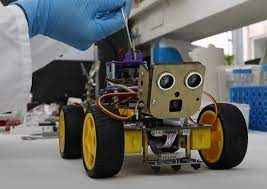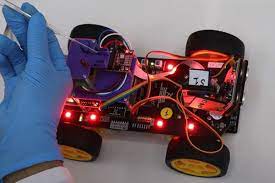Tel Aviv University has made a new Technological Development possible for a robot to smell using Biological Sensor. The Biological Sensor transfer signals to the Robot as a response to give presence of a nearby odor, for the robot can detect and interpret.

The researchers successfully connected the biological sensor to an electronic system, using a machine learning algorithm, which is able to detect odors with a level of sensitivity 10,000 times higher than that of a commonly used electronic device.
After the years of research, the technology may also be used in the future to identify explosives, drugs, diseases, and more. A doctoral student Neta Shvil of Tel Aviv University’s Sagol School of Neuroscience, Dr. Ben Maoz of the Fleischman Faculty of Engineering and the Sagol School of Neuroscience, and Prof. Yossi Yovel and Prof. Amir Ayali of the School of Zoology and the Sagol School of Neuroscience, breakthrough the biological and technological. The results of the study were published in Biosensors and Bioelectronics.

Dr. Maoz and Prof. Ayali explain, why “Man-made still can’t compete the technologies with millions of years of evolution. One area in which we particularly lag behind the animal world is that of smell perception. We can fine an example of this at the airport, where we go through a magnetometer that costs millions of dollars and can detect if we are carrying any metal devices.”
“But when they want to check if a passenger is smuggling drugs, they bring in a dog to sniff him. In the animal world, insects excel at receiving and processing sensory signals. A mosquito, for example, can detect a 0.01 percent difference in the level of carbon dioxide in the air. Today, we are far from producing sensors whose capabilities come close to those of insects.”
Here today the researchers successfully make it easy for us do to they research.

